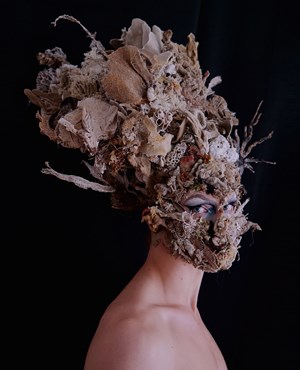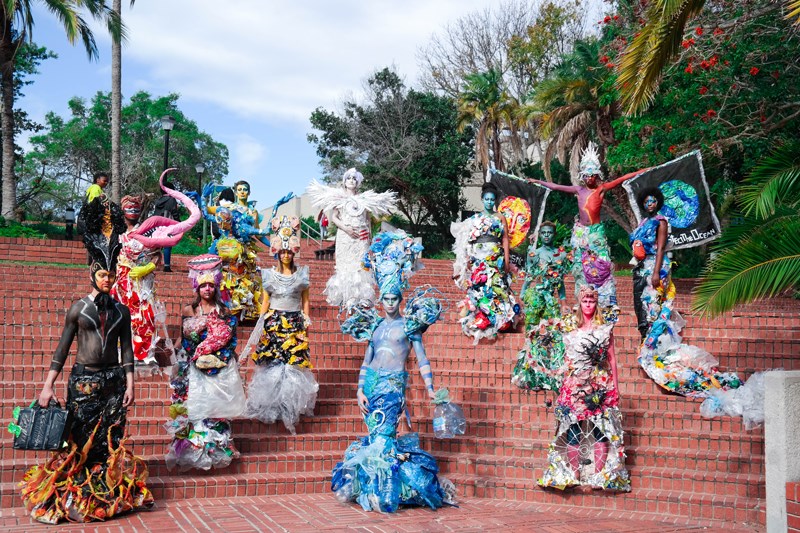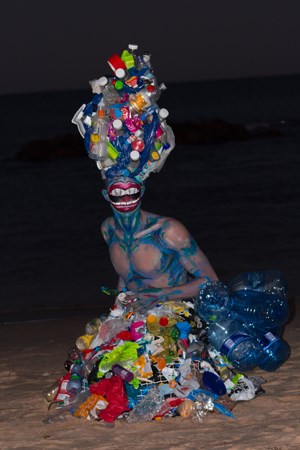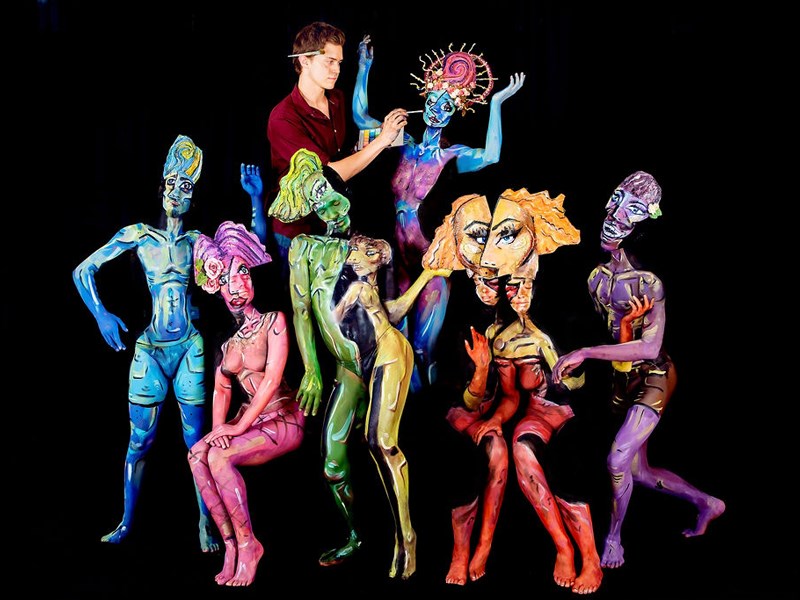
Top stories




Energy & MiningVitol joins consortium planning $3bn gas-fired power station at Durban port
Wendell Roelf 17 hours


More news








Marketing & Media
Prisa's Bradley Howland: The importance of professional associations








Rudman often uses himself as the canvas for his artworks, which are a form of self-expression and social commentary regarding climate change and the contributing political and cultural factors.


This year, Greenpeace Africa has invited Rudman to present a series of new eco-art performance pieces to be released and exhibited on Greenpeace Africa’s social media pages (@greenpeaceafrica) from the 24 to 30 July 2020. The project has been specifically timed to be released to coincide with #PlasticFreeJuly, a month of international focus on the plastic pollution crisis.
The incredibly talented artist and anti-plastic activist, Luke Rudman, will be taking over our Instagram as of 24 July.
— Greenpeace Africa (@Greenpeaceafric) July 21, 2020
Don’t miss out on the fun! Follow us on Instagram >> https://t.co/9ht6kjuPkG#breakfreefromplastic pic.twitter.com/zE4cBwoFAs
 How did your collaboration with Greenpeace Africa come about?
How did your collaboration with Greenpeace Africa come about?I first worked with Greenpeace Africa in 2019. My artworks pertaining to ecological issues, especially plastic pollution, began to receive some attention online and Greenpeace Africa reached out to me in support of the work. I spent the first half of 2019 working on my 12 Plastic Monsters art performance piece, a whimsical, surreal representation of the plastic pollution crisis and the various contributing cultural and political issues. When 12 Plastic Monsters was performed for the first time in August 2019 Greenpeace Africa invited me to ‘take-over’ their social media pages to allow me to publish footage from the performance in an effort to highlight the plastic pollution crisis through the ‘lens’ of an artist.
The 12 Plastic Monsters won a Stomp! Award (initiated by the UK government and the Commonwealth Litter Programme) and was invited to be re-performed in various cities in South Africa. Because of the impact of 12 Plastic Monsters last year, Greenpeace Africa invited me to tackle the issue of plastic pollution once again this year in the creation of many new eco-art performance pieces which will be exhibited on their Instagram page (@greenpeaceafrica) beginning on 24 July.

The issue of plastic pollution has been growing more severe, particularly this year due to the many misconceptions about everyday-plastic being inherently clean and sterile and safer than reusable items. The use of single use plastics has spiked in 2020 and so we are trying to highlight the issue through this body of work.
Of course, it is important to be a critical consumer and to do your best to buy and use less plastics. However, I do not think that the responsibility should be solely on the consumer. Plastic is terribly hard to avoid completely, the issue is with the market and lack of legislation.
I believe that the change should be in the form of less plastic being produced, not just in less people buying plastics. We need to put pressure on the governments and the big corporations responsible for the crisis.Make your voice heard, sign petitions, avoid supporting the corporations blindly exploiting the planet. A quote I saw on the @greenpeaceafrica page that resonated deeply with me goes: “When your bathtub is overflowing, you don’t just reach for the mop, you turn off the tap.”


Definitely working with Greenpeace so closely over the past few months. I would also say performing at the National Arts Festival last year and being the recipient of a Stomp! Award have been major highlights!
My work, especially my performative artworks, exist as self-expression and commentary. I try not to draw too much inspiration from one particular source, rather I try to create quietly and on my own, mindfully and authentically. Visually, I am very drawn to colour and dramatic silhouettes and a graphicness that is often only present in traditional mediums such as drawing or painting. I use myself as a canvas and use performance to bring my work to life.

Art has a unique ability when it comes to activism. Art can take something ‘everyday’ and cliché, such as the fight against plastic pollution, and turn it into something new and fresh and inspire people to involve themselves in the solution.
I hope that the work impacts and stays with people and empowers them to make the positive changes that we so desperately need.
 How do you hope humanity can come out of this pandemic better and stronger?
How do you hope humanity can come out of this pandemic better and stronger?This pandemic has been life changing, not only in my day-to-day life but also in the way that I think. The way in which the world has been impacted by this pandemic has shattered so many people’s idea of stability and normality in the world. Though the situation we are in is grim and extremely difficult, I have hope for the future. The way in which the unexpected happened and impacted all of us might broaden our collective imagination. I find myself thinking: The world changed so quickly and drastically over such a short period. What else could happen that I never thought would be possible?
In years to come, this year will definitely be seen as a defining moment in our fight to preserve the natural world.